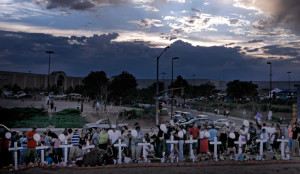
U.S. Senate
See Full Big Line
(D) J. Hickenlooper*
(R) Somebody
80%
20%

Governor
See Full Big Line
(D) Joe Neguse
(D) Phil Weiser
(D) Jena Griswold
60%
60%
40%↓

Att. General
See Full Big Line
(D) M. Dougherty
(D) Alexis King
(D) Brian Mason
40%
40%
30%

Sec. of State
See Full Big Line
(D) George Stern
(D) A. Gonzalez
(R) Sheri Davis
40%
40%
30%

State Treasurer
See Full Big Line
(D) Brianna Titone
(R) Kevin Grantham
(D) Jerry DiTullio
60%
30%
20%

CO-01 (Denver)
See Full Big Line
(D) Diana DeGette*
(R) Somebody
90%
2%

CO-02 (Boulder-ish)
See Full Big Line
(D) Joe Neguse*
(R) Somebody
90%
2%

CO-03 (West & Southern CO)
See Full Big Line
(R) Jeff Hurd*
(D) Somebody
80%
40%

CO-04 (Northeast-ish Colorado)
See Full Big Line
(R) Lauren Boebert*
(D) Somebody
90%
10%

CO-05 (Colorado Springs)
See Full Big Line
(R) Jeff Crank*
(D) Somebody
80%
20%

CO-06 (Aurora)
See Full Big Line
(D) Jason Crow*
(R) Somebody
90%
10%

CO-07 (Jefferson County)
See Full Big Line
(D) B. Pettersen*
(R) Somebody
90%
10%

CO-08 (Northern Colo.)
See Full Big Line
(R) Gabe Evans*
(D) Yadira Caraveo
(D) Joe Salazar
50%
40%
40%

State Senate Majority
See Full Big Line
DEMOCRATS
REPUBLICANS
80%
20%

State House Majority
See Full Big Line
DEMOCRATS
REPUBLICANS
95%
5%
 January 01, 2015 12:51 PM UTC
January 01, 2015 12:51 PM UTC 3 Comments
3 Comments


Minor correction, and the story is far more damning for conservative legislators than you stated.
Columbine occurred in April 1999. In June 1999 Simon Gonzales shot and killed his 3 little girls and then took fired at the police station in Castle Rock. Gonzales was a prohibited gun owner because of a protection order, but this was not discovered when he bought his gun (his 3 daughters played in the front yard of the house of the gun seller while he made the purchase) because only months before the Colorado legislature (Republican house and senate) chose to move the background checks for CBI to the FBI, thereby saving the gun buyer's money. Legislators warned that event such as the murder of the Gonzales' girls could happen, but they were undeterred. CBI Background checks are more thorough as they have access to more immediate data than the FBI.
Thankfully, soon thereafter, Republican Governor Bill Owens issued an executive order returning the checks to CBI. The next year (2000) the Republican General Assembly returned the checks to CBI by statute. There were a number of Republican votes AGAINST such a move. Owens' bill also had the state paying for the checks. This lasted until March 2013, when Rep. Lois Court's bill became law, which puts the costs of the BG check on the gun buyer, not the taxpayer.
Very useful context, thanks for all of this.
I agree, this is good information. And yes, it makes the Republicans look even worse. I hope the public clues in to the facts of this before 2016, because they should be outraged.